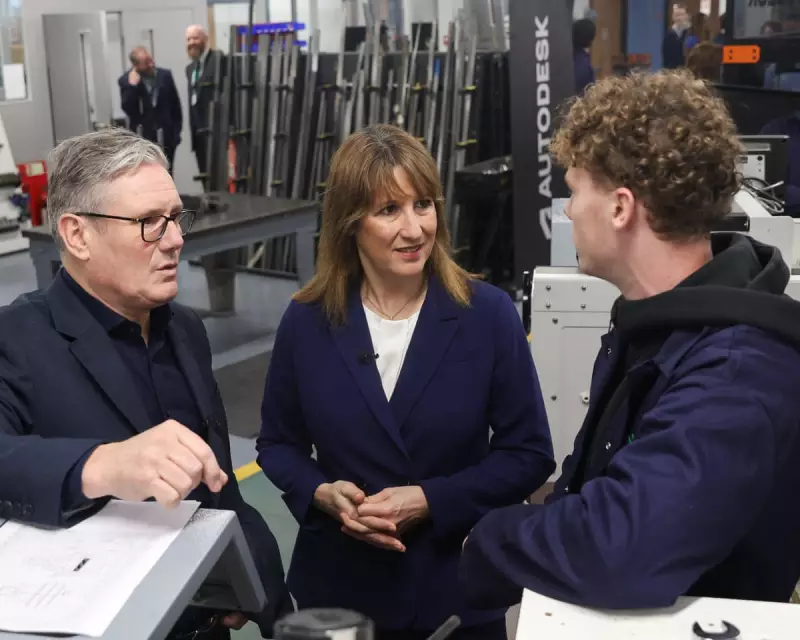
Chancellor's Tax Dilemma: Finding Billions Without Income Tax Rise
Chancellor Rachel Reeves faces one of the most challenging budgetary decisions in recent political history as she prepares to unveil her fiscal plans later this month. With the budget scheduled for 26 November, the Treasury is widely expected to announce tax increases totalling between £20 billion and £30 billion to repair Britain's public finances.
In a significant policy reversal, Reeves has abandoned plans to increase income tax rates - a move that would have marked the first such rise since 1975 and broken manifesto commitments. This leaves the chancellor exploring alternative revenue-raising measures that could prove equally controversial while adhering to the tight fiscal rules she adopted last year.
Alternative Revenue Streams Under Consideration
Extending the income tax threshold freeze represents one of the most likely options, despite Reeves previously describing such a measure as something that would "hurt working people." The freeze, initially implemented by Rishi Sunak during the pandemic and extended by Jeremy Hunt, would be prolonged for another two years until 2030, raising approximately £7.5 billion annually.
The Treasury is also considering implementing a pay-per-mile charge for electric vehicles at 3p per mile. This measure addresses the declining revenue from fuel duty as more motorists transition to electric vehicles, though initial Treasury returns are expected to be modest before building over coming years.
Gambling tax increases have gained significant backing, with former chancellor Gordon Brown leading calls for a £3 billion annual rise to fund child poverty measures. The proposal has support from thinktanks including the Institute for Public Policy Research and Social Market Foundation, along with MPs on the Treasury select committee, though intense industry lobbying may result in a compromise solution.
Wealth and Property Targeted in Revenue Drive
Pensions tax relief through salary sacrifice schemes faces potential restriction, with the Treasury considering levying National Insurance contributions in full on these arrangements. This could raise up to £4 billion per year but may affect incentives for retirement saving, particularly among higher earners who typically use these schemes.
Council tax reforms targeting properties in the top two bands (G and H) could see rates doubled, generating around £4 billion annually. This controversial measure would highlight the regressive nature of the current system based on 1991 property valuations, though the chancellor would need to defend the policy against claims it unfairly targets property-rich but cash-poor homeowners.
Capital gains tax reforms complete the potential revenue-raising measures, with cross-party experts recommending changes to create a more progressive system. The most likely implementation involves a "settling up tax" when high net worth individuals leave the country, potentially raising up to £2 billion per year.
Political and Economic Implications
The chancellor's decision to rule out income tax rate increases reflects political pragmatism, but the alternative measures present their own challenges. Each option carries significant political ramifications and potential backlash from affected sectors and the public.
With the 26 November budget fast approaching, the Treasury's final decisions will reveal how the government balances fiscal responsibility with political viability. The chosen combination of tax measures will not only determine whether Reeves meets her £20-30 billion revenue target but also define the government's economic approach for the remainder of the parliamentary term.





